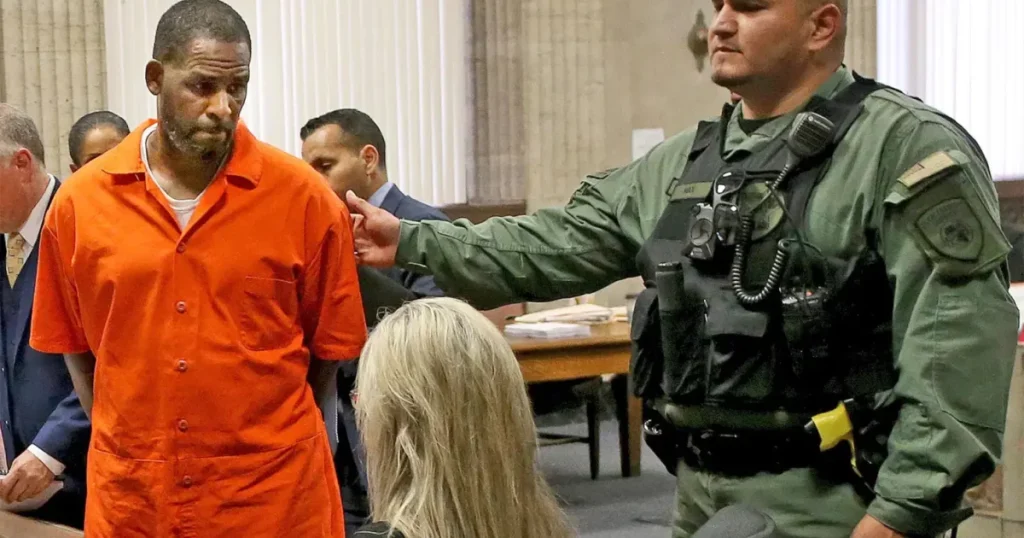R. Kelly, the disgraced R&B singer currently serving a lengthy prison sentence for sex trafficking and child pornography, recently petitioned a Chicago federal court for immediate release from prison and placement under home detention. His legal team constructed a dramatic narrative of alleged conspiracies and abuses within the federal prison system, claiming their client’s life was in imminent danger. The motion painted a picture of orchestrated efforts to sabotage Kelly’s legal defense and even a plot to assassinate him. However, Judge Martha Pacold swiftly denied the motion, asserting a lack of jurisdiction over Kelly’s current confinement, which is in North Carolina, outside her judicial district. This denial effectively shuts down Kelly’s avenue for immediate release based on these specific claims.
The core of Kelly’s argument rested on accusations of a coordinated campaign against him within the federal Bureau of Prisons. His lawyers alleged that while Kelly was held at the Chicago Metropolitan Correctional Centre (MCC), officials colluded with a former cellmate to intercept and share his confidential legal mail with the prosecution, thereby compromising his defense strategy before his trial. This alleged breach of attorney-client privilege formed a central pillar of Kelly’s claim that he was being unfairly targeted and denied a fair legal process. The motion further escalated the accusations, claiming that upon transfer to FCI Butner in North Carolina, the alleged persecution continued, with prison authorities purportedly attempting to recruit a member of the Aryan Brotherhood, a notorious white supremacist prison gang, to carry out an assassination attempt against the singer.
Further amplifying the sense of urgency and alleged danger, Kelly’s legal team claimed that prison staff at FCI Butner had not only neglected his medical needs but had actively endangered his life. They alleged that Kelly was administered a near-fatal overdose of medication and then, against medical advice, prematurely discharged from a hospital. This narrative of deliberate medical malpractice served to bolster the picture of a systematic campaign to harm Kelly within the prison system. The motion even included an extraordinary plea to then-President Donald Trump for intervention, a move that underscored the desperation of Kelly’s legal team and their attempt to frame his incarceration as politically motivated persecution.
However, the prosecution vehemently countered these claims, labeling them as baseless fabrications designed to manipulate public opinion and distract from Kelly’s established guilt. They argued that Kelly was simply refusing to accept responsibility for his crimes and was using the court system as a platform for self-promotion and to garner sympathy. The prosecution’s response effectively dismissed the allegations as a desperate attempt by a convicted criminal to evade the consequences of his actions. They highlighted the lack of credible evidence to support Kelly’s claims and emphasized the severity of his crimes, for which he had received a just and appropriate sentence.
Judge Pacold’s concise ruling ultimately sidestepped the dramatic allegations presented by Kelly’s legal team, focusing instead on the jurisdictional issue. Her statement clearly indicated that because Kelly was currently incarcerated in North Carolina, the Chicago court lacked the authority to intervene in matters pertaining to his confinement or grant the requested emergency relief. This decision effectively shut down Kelly’s attempt to secure immediate release based on these specific claims of conspiracy and abuse. The ruling underscores the importance of jurisdictional boundaries within the legal system and prevents a convicted criminal from forum shopping or seeking relief in courts that lack the proper authority to address their specific circumstances.
R. Kelly, now 58, is serving a cumulative sentence of 30 years stemming from his 2021 conviction in New York on charges of racketeering and sex trafficking, crimes that involved the systematic exploitation and abuse of young women and minors. A subsequent 2022 conviction in Chicago on child pornography charges further solidified his status as a convicted sex offender. While his sentences are largely concurrent, meaning they are served simultaneously, the length of his combined sentences ensures a long period of incarceration. His projected release date is currently set for December 21, 2045, meaning he is expected to spend the majority of his remaining life behind bars. This lengthy sentence reflects the gravity of his crimes and society’s condemnation of his predatory behavior. Despite his attempts to portray himself as a victim of a conspiracy, the legal system has held him accountable for his actions, ensuring a measure of justice for his victims.


